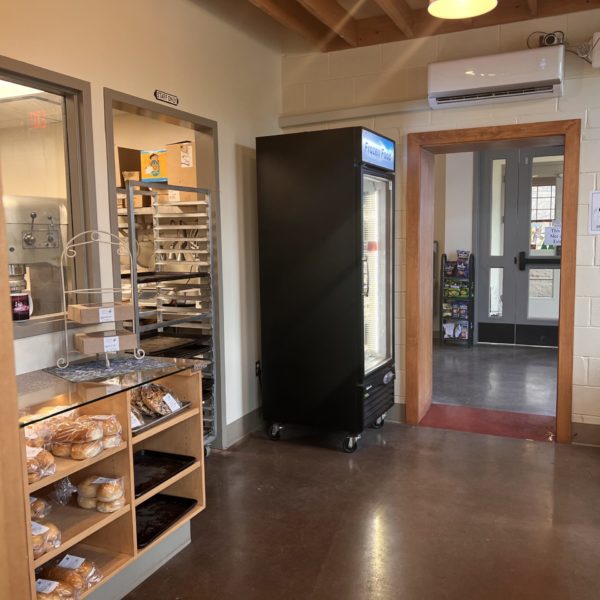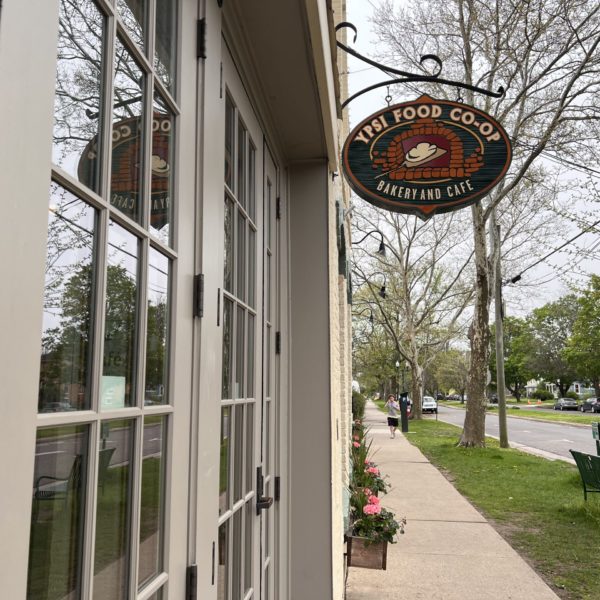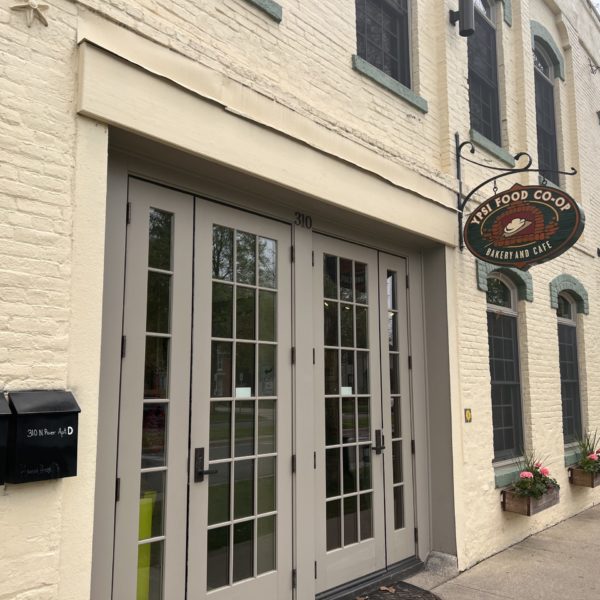Ypsilanti Food Co-Op
312 N River St, Ypsilanti, MI 48198
(734) 483-1520
www.ypsifoodcoop.org
Whole Foods, Trader Joe’s, Zerbos, By the Pound – do any of these local, or national health food stores ring a bell?
Over the last decade, the food these stores sell– organic produce, locally sourced products, and cage free eggs to name a few– are becoming common items on grocery store shelves, and in our pantries. Where did this trend of these health food stores originate?
According to Corinne Sikorski, these stores and products can be traced back to Food Cooperatives or Co-ops. Corinne would know a thing or two about these businesses, serving almost four decades as the General Manager of the Ypsilanti Food Co-op.
Since the 1800s, thousands of Co-ops have sprouted up around the world to combat food insecurity, food safety, high food prices, and other consumer needs. Although the Ypsilanti community has history with cooperatives dating back to the 1930s, the Ypsilanti Food Co-op officially incorporated in1975. Its mission: to provide high-quality food and goods, produced ecologically and sustainably, while practicing cooperative economics.
Not only does Corinne work to accomplish the Co-op’s mission, she also manages relationships with the board, member-owners, and employees. With now almost 2 million a year in sales, she shares one of her “secrets to success”: working with business consultant at the Greater Washtenaw Region SBDC, Ron Stevens, for over a decade.
“He has helped me turn volunteers into staff, enhance communication with our board, develop budgets, assist with an expansion project, walk us through the process of borrowing money, and help us understand how to manage our recent growth pains” shares Corinne.
Over their years of working together, Ron and Corinne have become close friends, happily checking back in with each other anytime a question or concern pops up. “It’s nice to work with someone who is truly dedicated to their business and to its success,” Ron reflects. “Corinne has been General Manager for much of her life, yet still brings fresh ideas to the table and is ready to take on new challenges and grow.”
Rapid growth, somewhat unexpectedly, was part of the Co-op’s success during the pandemic, and the business continues to grow. On March 13th, 2020 the Co-op had its largest day in sales, ever. Since then, sales have been up around 25% for the year, much of which goes to increasing employee wages. Corinne believes this growth in sales is both “a combination of curbside pickup, and the desire of our community to support local businesses.”
Ron explains, “the Co-op is a pillar in the Ypsilanti community, which does not have a lot of fresh produce, locally sourced products and neighborhood grocery stores nearby.”
Corinne herself, both through her tireless dedication to the Food Co-op, and local development efforts exemplifies this deep immersion in Ypsilanti. She previously served as a member of the Ypsilanti Downtown Development Authority, the board of Western Washtenaw Recycling Authority, and a nonprofit group supporting renovation of the historic Ypsilanti Freight House.
Closing in on 2020’s end, the pandemic seems far from over, but Corinne is proud that despite lockdown orders, the Co-op is able to stay open and provide a sense of normality, friendship, and togetherness which is all too often lost, especially for older residents who rarely leave their homes.
Looking ahead, as unpredictable as it may be, Corinne hopes to leave the Co-op in great hands.
“I’m close to retirement, and truthfully, I want to retire when the business is thriving, in a sustainable way, as it is now.”
To Corinne, watching the business grow, has been like watching her own children grow; although it’s bitter-sweet to think about stepping away from the business, she knows it will be in great hands, and will continue fulfilling its commitment to high quality food in a economically sustainable way, in close connection with Ypsilanti.
Dive deeper into the history, and community engagement of the Ypsilanti Food Co-op through a video created by Eastern Michigan University students here.
Published July 2022
Related Client Stories
Shelf LLC
For restaurant owners juggling razor-thin margins, managing inventory efficiently is a critical ingredient for...
Luna Lux Lounge
In the heart of Jackson, a new star has quickly risen to define the...
Mitten Health & Performance
Mitten Health & Performance recently opened its doors, and the business is off to...











